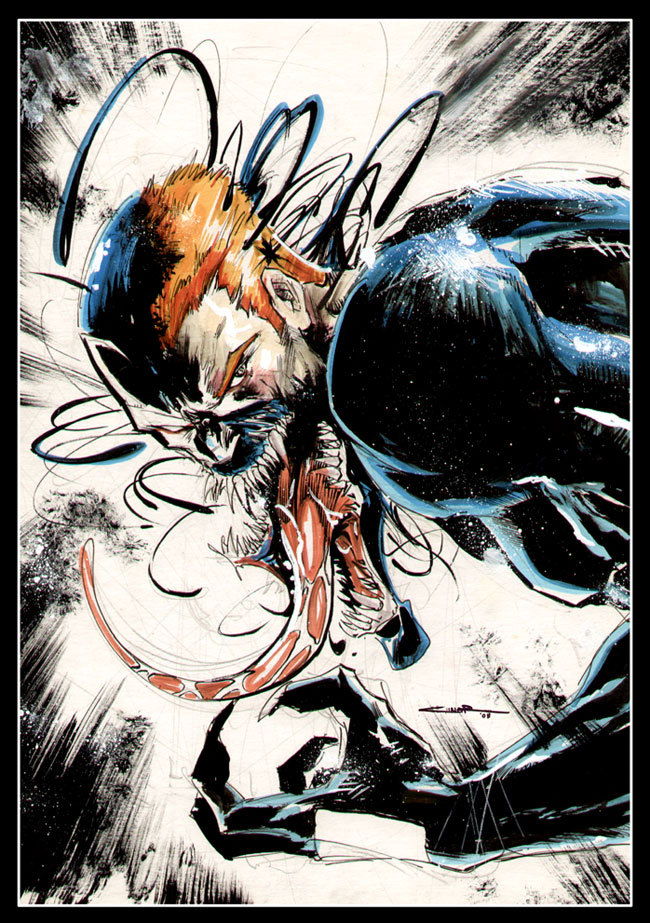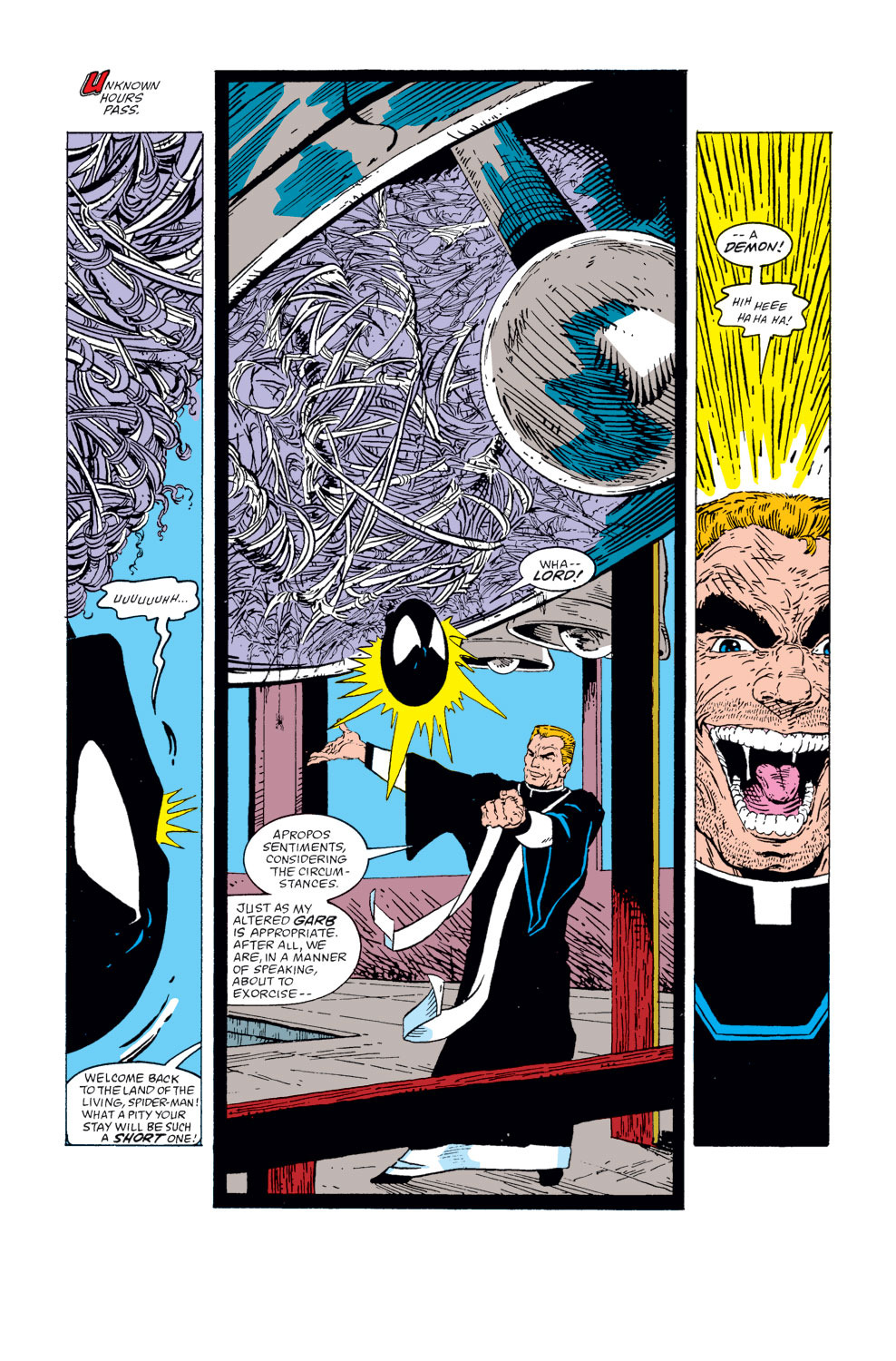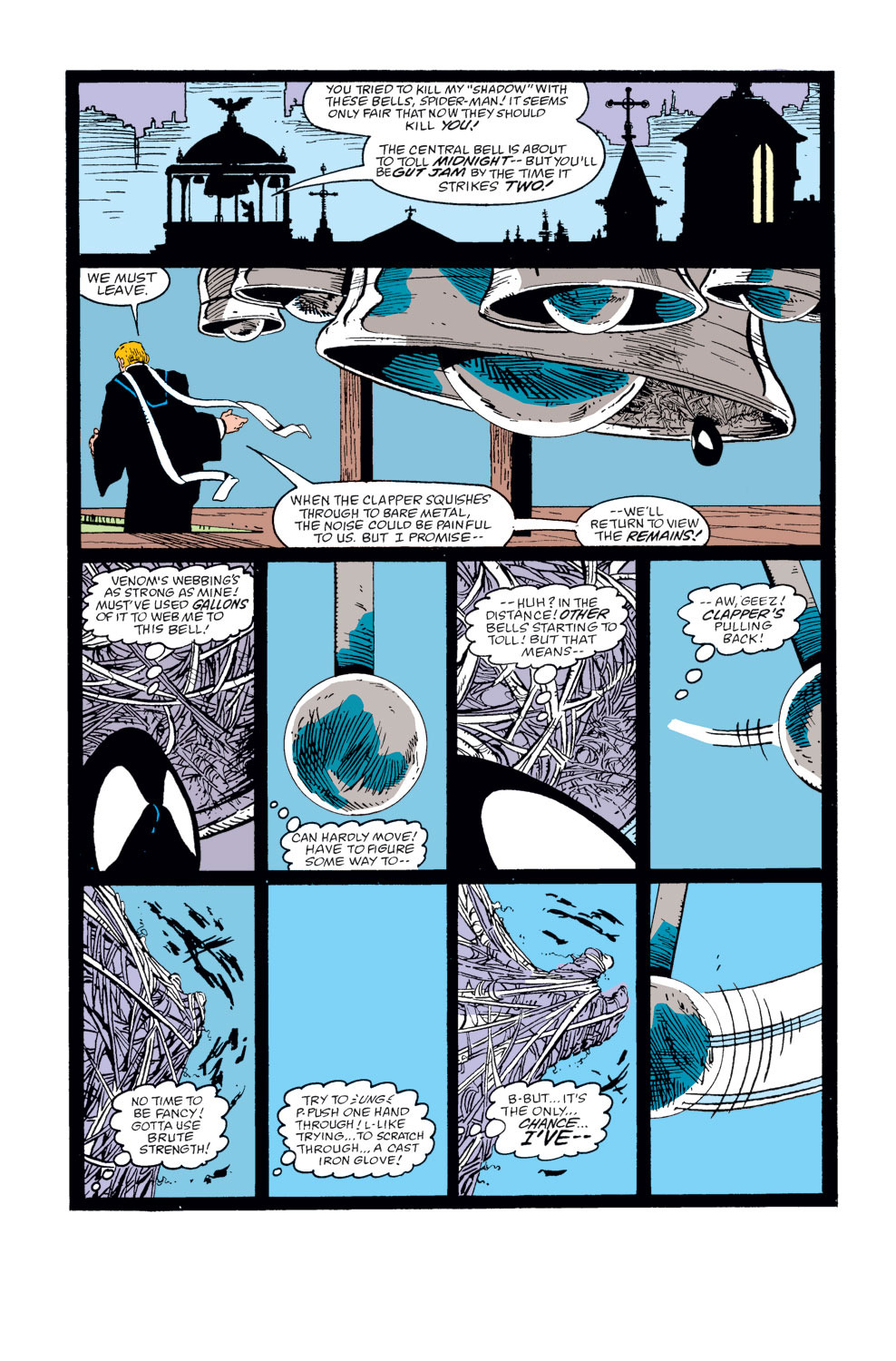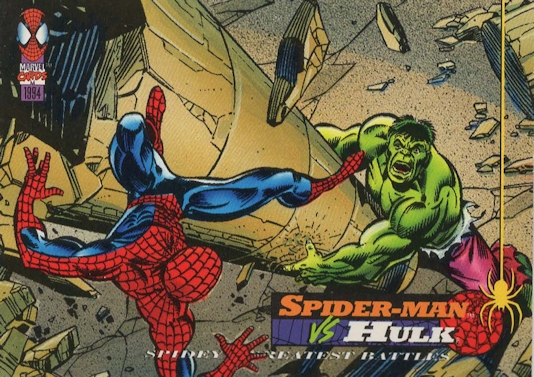In this instalment we focus upon the theme of hypocrisy, a vital one to understanding Eddie Brock.

In this instalment we take a look at an often ignored and misunderstood aspect of Eddie Brock’s character. His hypocrisy.
Like last time we are still addressing this criticism I raised way back in Part 1
- Eddie Brock’s motivations for hating Spider-Man are weak and make no sense
Also like last time I recommend refreshing your memory of Brock’s accounting of his origin story from ASM #300.
Religious Hypocrisy
As I said above, hypocrisy is an immensely important aspect to understanding Brock’s character and it’s one few people seem to take account of.
This can even be observed with prestigious Spider analysts such as J.R. ‘Madgoblin’ Fettinger. In his essay ‘The Dark Side of the Spider’ he wrote:
With respect though there is a problem with the above criticism. Namely that it presumes that the contradictions present in Brock’s attitude were not an intentional story choice.
They are present to highlight the fact that Brock is a hypocrite and a far cry from a good person, let alone the good Catholic he claims to be. You could even say the exact same thing of the Sin Eater himself, a character who at worst few Spider-Man fans seem to have a problem with in terms of his motivations despite them being similarly at odds with his beliefs. Indeed the Death of Jean DeWolff is listed in Fettinger’s top 10 Spider-Man stories.
In fact it is arguable that Michelinie’s very decision to make Catholicism such a vital part of Brock’s character was a signpost to the readers that he was a hypocrite. Rightly or wrongly in a lot of media religion (particularly Catholicism) is presented as intrinsically hypocritical and morally bankrupt. So the very act of making Brock a Catholic might have been intended to suggest that idea to the readers.
However as far as religion is concerned perhaps the single biggest thing that obviously advertises Brock as a hypocrite is when he claims he couldn’t bring himself to commit suicide. His logic is that his strongly held Catholic beliefs prevented him from committing a mortal sin such as suicide. And yet in ASM #300 Brock had not only dedicated his life to violently murdering someone but was also willing to do the same to anyone who got in his way.
Respect for the Law?
This hypocrisy over the act of killing himself compared to killing others is poignantly demonstrated when he horrifically suffocates a young police officer, one whom he himself even identifies as ‘innocent’.


You will recall how Brock in ASM #362 complimented Johnny Storm and the Fantastic Four for their heroic efforts in protecting innocents.


One would imagine that this same respect would extend to members of the law enforcement and yet Brock not only killed this young officer and did so in a very violent way, but he also did it needlessly.
Brock was innocent of the crime he was being accused of by the officer. His plan for killing Spider-Man didn’t involve any window of time he needed to work within. He just had to find Spider-Man and bring him to the church, which he could’ve done that at any point. Perhaps his plans required the church to be empty so initiating his plan at night limited his options a little, but there was no reason he needed to strike on any specific night.
All of which means Brock could have complied with the officer and avoided any kind of physical confrontation. Even if he was looking at jail time, escape and going under the radar would’ve been easy with his powers; he could even have slipped away whilst being escorted to the station.
Hypothetically even if there had been no choice other than a physical confrontation, the police officer couldn’t have hurt him or truly jeopardized his plans. Thanks to the symbiote Brock could probably easily survive a few gunshots (something confirmed in later stories) or could have moved fast enough to just dodge the bullets. From there it’d be easy to disarm the officer (something he actually does during the scene in question) followed by scaring him into not talking, imprisoning him or at worst killing him quickly and painlessly.
Despite his words to the contrary Brock had a lot of choices he could have made. But he actively chose not only the lethal option but also a particularly violent one. Suffocated whilst your vision and hearing are also impaired is hardly a nice way to go out, quickly snapping the neck would have been far more merciful.
During the exchange all we got as far as Brock’s alleged ‘Catholic morality’ is concerned was a sigh and him casually saying innocent death is unpleasant. Despite this, he proceeded to reaffirm his vengeance as ultimately more important and then never mentioned or thought about the young cop ever again.
At the start of the scene he even claimed that he found the idea of killing repulsive. Yet later in the story we learn he had set up an exceedingly violent and gory death for Spider-Man involving his body being repeated crushed within a large church bell. His dialogue in this scene reflects those same violent sensibilities and unnervingly he is incredibly casual, even humorous about it.



A not dissimilar scene to the cop’s death occurred in ASM #315, also penned by Michelinie. After tricking a security guard (Hugh Taylor) into opening his cell, Venom again violently suffocated the poor man to death.



Just as with the cop’s murder in ASM #300 this was also entirely pointless.
Brock’s cell likely had security cameras and other devices monitoring him. Taylor’s absence and consequent body would have raised the alarm sooner or later, especially since Brock didn’t even bother to hide the corpse. With this in mind, had Brock just rendered Taylor unconscious it would’ve yielded effectively the same desired results. Yet he opted to go beyond that and take another innocent life.
Whilst he demonstrated more remorse than when he killed the police officer, Brock nevertheless falsely claimed the murder as a necessity justified by his quest for vengeance and similarly never dwelled on his actions again. That is until Venom: The Lethal Protector #2 where the murder came back to haunt him. In that issue Brock is confronted about Taylor’s death by one of his relatives and claims (in arguable contradiction to ASM #315) that he and the symbiote ‘didn’t want to hurt anyone.’

Arguably this can be taken as yet further proof of Brock’s hypocrisy and/or evidence of his mental instability, but we’ll talk more about that later.
Authority Sinners
This then brings us right back to Brock’s feelings about the Sin Eater.
For the moment put aside how Brock knowingly allowed someone he believed to be a serial killer roam free. Instead consider what he had to say about Stan Carter himself in ASM #300. He laid the blame for his ruined life and career at Spidey’s feet on account of his capturing the Sin Eater, going further to say that ‘perhaps’ Carter might’ve wised up and stopped knowing he could have gotten away with his crimes.
At best this demonstrates an incredible lack of faith in the authorities’ abilities to bring a notorious killer to justice and an utter naiveté over Carter’s nature. At worst this is a profoundly selfish outlook for Brock to adopt. He literally blamed Spider-Man for bringing a murderer to justice.
This would be bad enough in and of itself, especially in light of his Catholicism. But the sentiments he expresses honestly amount to him saying he wouldn’t have minded if a dangerous murderer had gone free or gotten away with his crimes so long as he got to keep his career. Indeed for all the compassion he claimed he had for Gregg when writing his story Brock seemed perfectly happy to allow him to take the fall for crimes he didn’t commit so long as it didn’t impact upon his own life and career.
Whilst you could cite these (and other) examples of Brock’s obviously twisted and unstable mentality (more on this in later instalments), it nevertheless reinforces the notion of him as a humungous selfish hypocrite.
He is a man incapable of taking his own life due to his allegedly strong religious beliefs but doesn’t apply the same logic to the lives and well being of other people, despite whatever lip-service regrets he spouts.
Truth in Journalism
Brock’s hypocrisy even goes beyond his religious beliefs.
In his recounting of his origin, Brock claimed he was a great journalist but the lack of such basic fact checking on Gregg potentially suggests otherwise. This is actually supported in some stories published long after ASM #300 where Brock is called out for practicing poor journalism. One such example is the dubiously canonical Uncanny Origins #7, which retells Brock’s origin.

Brock’s contradictions’ regarding his journalistic skills immediately calls into account his reliability as a source of information.
This is arguably corroborated when he admitted he made ‘an error in judgement’ but then reaffirmed he was always a good journalist.* This not only seems hypocritical because a genuinely good journalist is unlikely to have made such a huge blunder, but it hints at a larger idea. That Brock might (deliberately or otherwise) be skewing the truth, a notion that actually makes a certain amount of thematic sense when one considers Brock was a newsman.
Brock’s journalistic abilities to skew the truth to his own advantage also play a certain role in another aspect of his character: his perception of reality.
But that’s all for the next time.
*Take note of Brock’s language when discussing his own mistakes. He says he made ‘an error in judgement’. That’s a very mild way to convey that he trusted the word of someone obviously mentally unstable without fact checking and more importantly withheld important information unethically. It grossly downplays the magnitude of his mistake.









@Enigma
I’m not literally vindicating Brock’s actions in-universe and saying he was justified morally.
I am talking about this from a storytelling POV
Face it. Unless your name is Wolverine, you can’t vindicate a killer. Unless you take the Black Cat method and just pretend it never happened while wearing something skin tight.